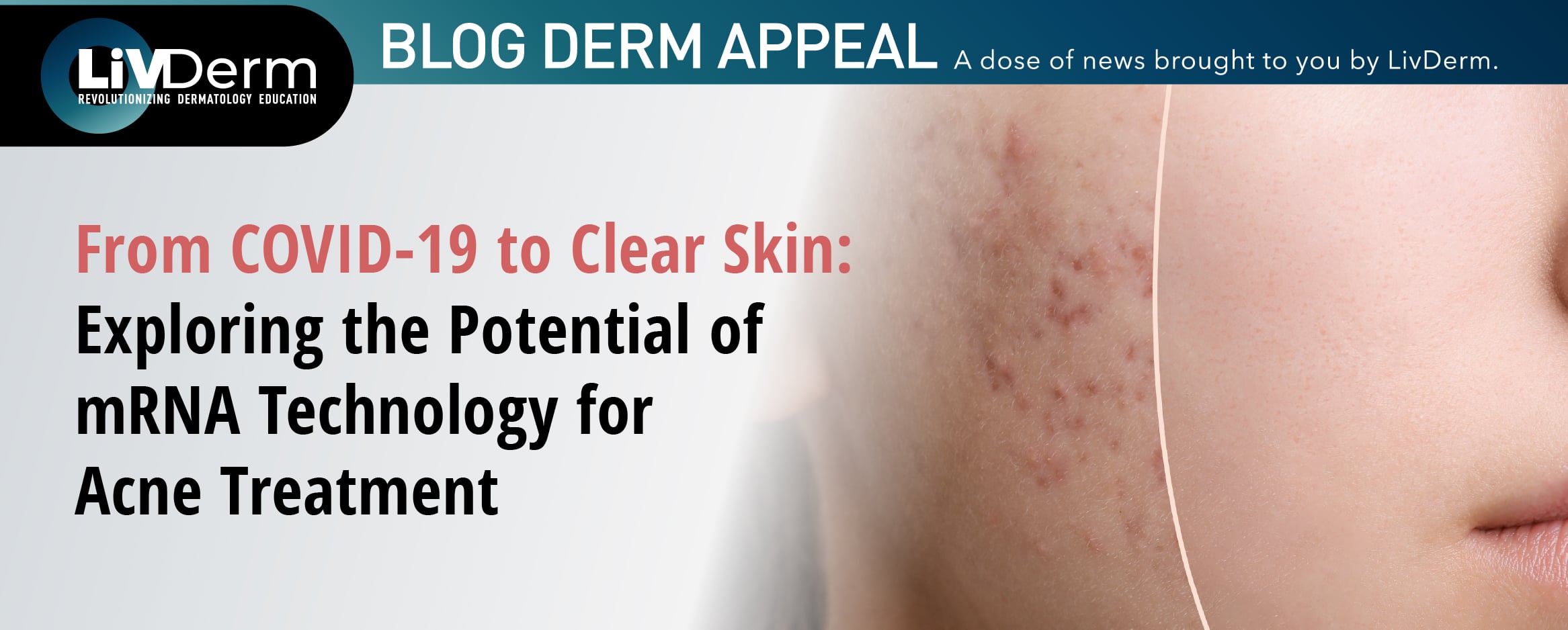Messenger RNA (mRNA) technology gained prominence during the COVID-19 pandemic, demonstrating its ability to rapidly deliver safe and effective vaccines on a global scale. Now, this scientific innovation is making its way into dermatology, with early research suggesting that mRNA platforms may one day redefine acne management.
For dermatologists, this represents an exciting convergence of immunology, microbiology, aesthetic medicine, and a potential paradigm shift in managing one of the world’s most prevalent skin conditions.
Why mRNA Matters in Acne
Acne vulgaris affects up to 85% of adolescents and many adults, but therapeutic limitations are still relevant. Current regimens, from topical retinoids and antibiotics to systemic isotretinoin, often bring challenges of adherence, side effects, and antibiotic resistance.
The appeal of mRNA technology lies in its precision and adaptability. By teaching the body’s immune system to recognize and target specific acne-associated bacteria, particularly Cutibacterium acnes, mRNA-based treatments could provide a longer-lasting and more sustainable approach. Rather than relying on broad-spectrum antibiotics or hormonal interventions, these therapies could help restore microbial balance and reduce inflammation at its source.
Clinical Relevance for Dermatologists
For clinicians, integrating mRNA therapies into acne care could help address the following long-standing challenges:
- Antibiotic Stewardship: Reducing the need for oral antibiotics could mitigate resistance patterns, aligning with broader public health priorities.
- Patient Adherence: Unlike daily topical or oral medications, an mRNA-based approach could streamline regimens, potentially requiring only periodic dosing.
- Expanded Treatment Options: This technology may provide alternatives for patients who cannot tolerate or fail existing therapies, including those with severe or refractory acne.
In addition, mRNA’s modular design means treatments could be tailored to patient subtypes, targeting distinct bacterial strains or inflammatory pathways. This individualized approach mirrors a growing movement in dermatology toward precision medicine.
Challenges and Considerations
While the promise is substantial, several obstacles remain before mRNA technology can become a clinical reality in acne care. Dermatologists will need to consider safety profiles, ensuring localized action without unintended systemic immune responses.
Dermatologists must consider delivery mechanisms, including skin-specific formulations that ensure efficacy without invasive procedures. They must also evaluate long-term data to better understand patient protection, relapse rates, and the broader skin microbiome.
As with any innovation, clinical trials and regulatory guidance will be crucial before implementing the treatment into practice.
Looking Ahead
The success of mRNA vaccines during the COVID-19 pandemic has accelerated interest in applying this platform across medicine, including dermatology. If ongoing research confirms efficacy and safety in acne, mRNA-based treatments could become a first-in-class therapeutic category, reshaping how dermatologists approach one of the field’s most common conditions.
For the dermatology community, staying informed on these developments is key. As research expands, clinicians may soon be faced with new opportunities to incorporate mRNA technology into acne care, not only enhancing patient outcomes but also reinforcing dermatology’s role at the forefront of medical innovation.

















